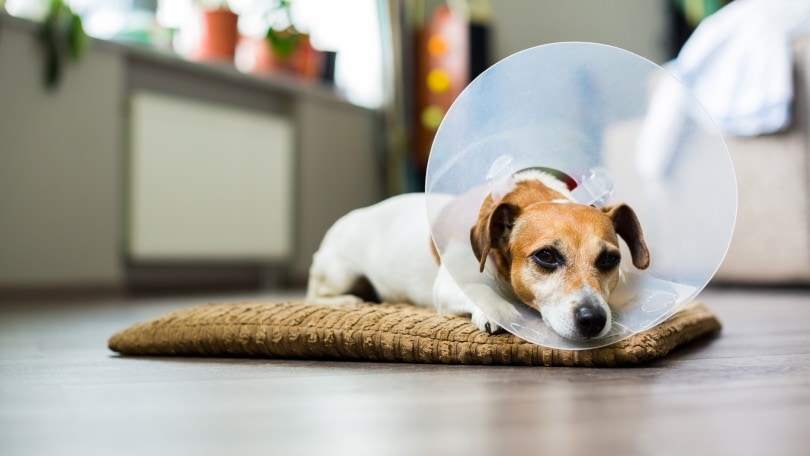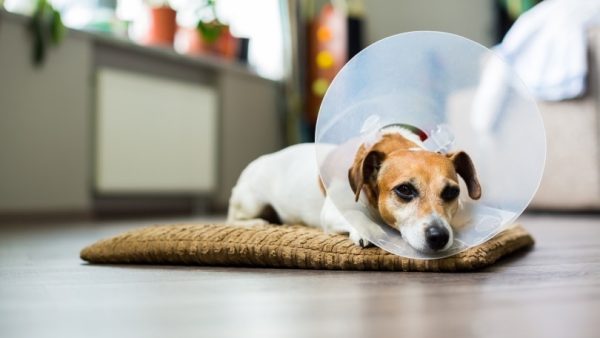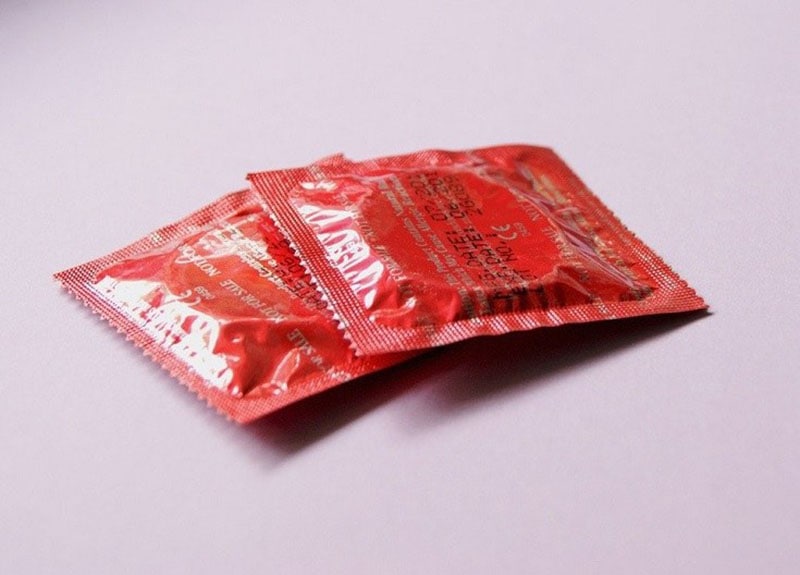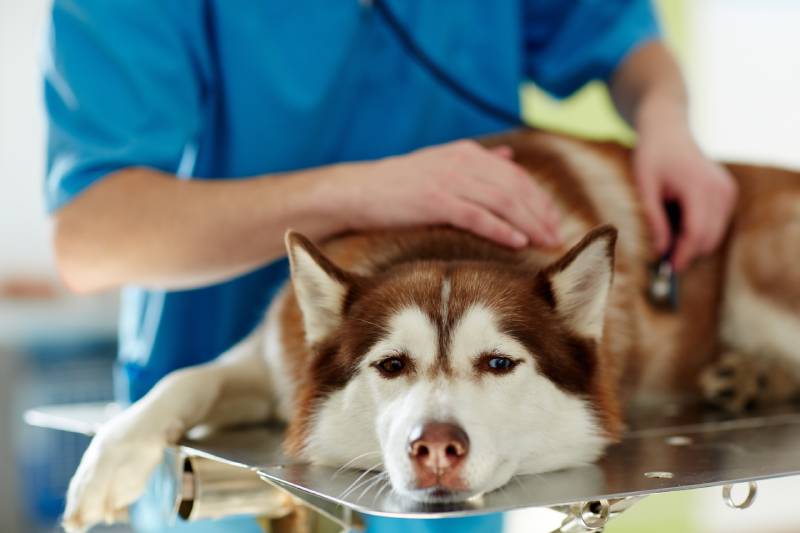If your dog has to undergo a routine or complex surgical procedure, your veterinarian has most likely informed you that before the surgery, your pet should not eat for 8–12 hours or drink water for 2 hours.
Fasting before surgery with general anesthesia is crucial, whether we are talking about humans or pets. The role of fasting is to prevent vomiting and aspiration of stomach contents into the lungs during the intervention, which can be fatal. That is why you must tell the vet if your dog has eaten any food before the surgery. Your vet may postpone or cancel the surgical procedure, though it depends on what food, how much, and how much time has passed since your dog ate it.
In this article, learn why dogs need to fast before surgery, if fasting is safe, and what you should feed your pet.
Why Do Dogs Need to Fast Before Surgery?
There are many reasons that your dog should not eat before surgery. For one thing, food in the stomach can cause serious problems when your pet is under general anesthesia. Vomiting or regurgitation (gastroesophageal reflux) usually occurs during the induction of anesthesia due to the anesthetic agents administered.1 This is due to the relaxation of the esophageal sphincter.
Total sedation enables dogs’ muscles and organs to relax, except for the heart, lungs, and brain. When the stomach is relaxed, its contents can go back up the esophagus, and dogs can vomit. When dogs are moved from one room to another in the veterinary clinic (for various tests before the procedure), the chance that they will vomit during surgery increases.
When stomach contents are inhaled into the respiratory tract, it is called pulmonary aspiration. This happens because the larynx is relaxed from the anesthesia and the epiglottis remains open. The epiglottis is part of the larynx that remains open when dogs breathe and closes when they eat or drink, precisely so food or water does not enter their lungs.
If the pulmonary aspiration happens while dogs are awake, their body will react through a coughing reflex. During anesthesia, when your dog is completely sedated, the coughing reflex will not occur, and the aspirated content will go into the lungs. This will lead to aspiration pneumonia (an infection of the lungs caused by inhaling a foreign material), which can be fatal.
Even small amounts of food can be dangerous and cause problems, so it is recommended to follow your vet’s advice and not hide the fact that your dog has consumed food or water before surgery.
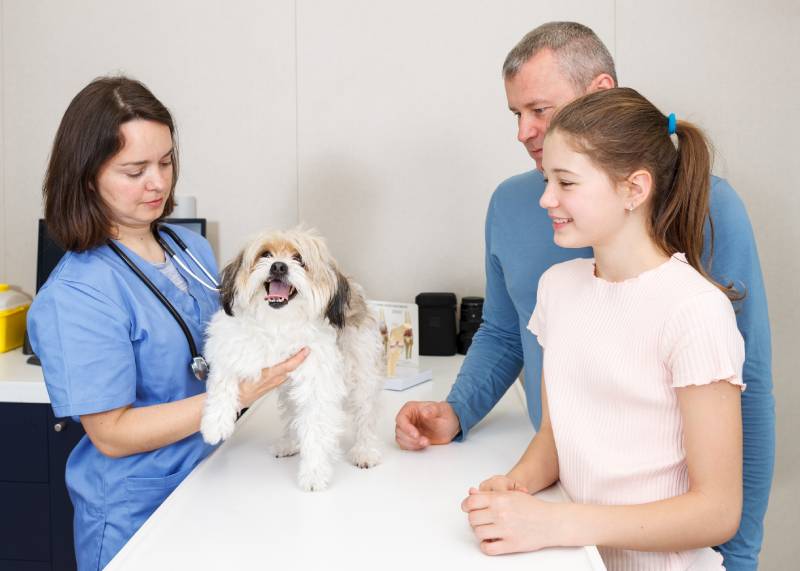
How Long Should Dogs Fast Before Surgery?
Regarding how long dogs need to fast before surgery, vets’ opinions are divided: some recommend 12 hours and others 6–8 hours. However, the fasting time depends on several aspects, such as:
- Your dog’s breed
- Health condition
- Age
- The type of surgery
Usually, the recommendation is to stop giving food to your dog after 8 or 9 in the evening. However, there are certain procedures where veterinarians may advise you to not give your dog food 24 hours before the surgery.
For puppies, the veterinarian may recommend a shorter time because they have a much faster metabolism. In the case of emergency procedures, the vet will evaluate your dog to see if they are eligible for surgery. In adult dogs, the gastric emptying time is 5–10 hours.
However, newer research is challenging these recommendations. Some studies show that a 4–6-hour period of starvation is sufficient for healthy dogs or that eating a light meal 3 hours before surgery decreases the risk of esophageal reflux. But other research shows the opposite, that a light meal 3 hours before surgery increases the risk of reflux and regurgitation.
The starvation time also depends on the dogs’ breed, with brachycephalic dogs being more prone to pulmonary aspiration during anesthesia (and afterward). This is due to the fact that breeds like Boxers, Bulldogs, or Pugs have different head anatomy and respiratory problems. So for these breeds, it is recommended to fast them for 6–12 hours.
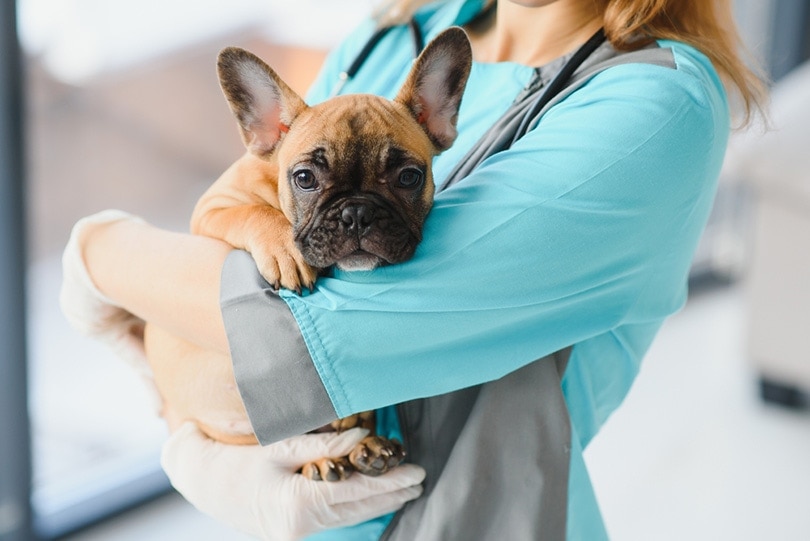
Is Fasting Dangerous for Dogs?
Fasting is safe for dogs, even being considered anti-inflammatory. It reduces glucose levels and insulin concentration in the blood, giving the immune system a break.
If you stop giving food to your dog, they can better eliminate toxins from the body, which in turn, can repair and regenerate better. The immune system will encourage the production of neutrophils (white blood cells with an anti-inflammatory role), strengthening it. As a result, the immune system will be able to fight against bacterial and viral infections better.
If you do not give your dog food 12 hours before the surgical procedure, it is not considered dangerous and does not put their life and health at risk. However, starvation for very long periods can cause digestive problems and worsen gastric acidity.
When the stomach acid is highly concentrated, it can burn the gastric and esophageal mucosa (in the case of gastroesophageal reflux), causing esophageal stricture, which is the narrowing of the esophageal lumen caused by scarring. For this reason, it is recommended to talk to your veterinarian whenever you want your dog to fast because the safe duration is different for each pet.
What Diet Should I Feed My Dog Before Surgery?
In the days and weeks before the surgical procedure, don’t change your dog’s diet, as it can lead to digestive problems and unnecessary stress. The visit to the vet, the surgical procedure itself, and the recovery period are stressful events for your dog, and experimenting with a new diet can increase their stress level. Keep things as normal as possible for your dog, including their diet.
It is also recommended not to give your dog a bigger meal than usual or a new food brand before surgery day (before fasting).
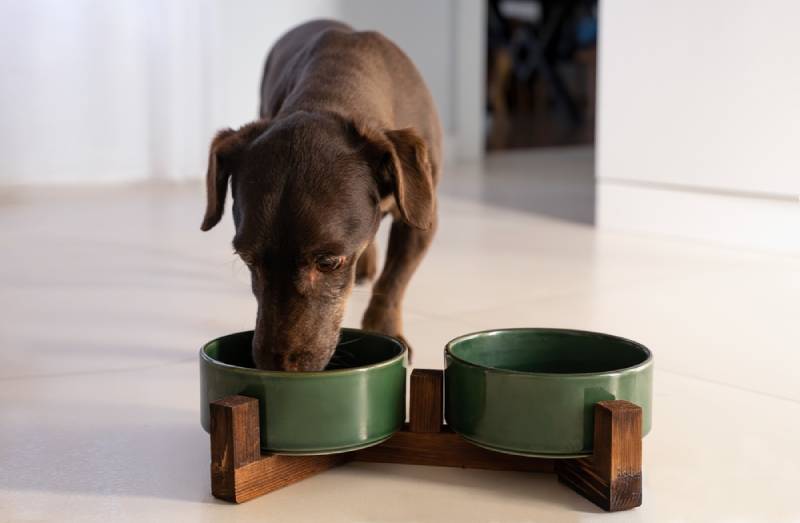
Can My Dog Drink Water Before Surgery?
As with food, your dog must also fast from water. But it is usually recommended to stop giving water to pets only a few hours before surgery. This shorter time is because water passes through the digestive system faster than food.
It is not considered dangerous to stop giving your dog water a few hours before the procedure. They will not become dehydrated, as they are usually administered IV fluids during and after surgery.
If you give your pet water right before surgery, your dog is subject to the same risks as giving them food before the procedure: vomiting and pulmonary aspiration, which can lead to infections or death.
Frequently Asked Questions
How Long Should My Dog Fast Before Dental Surgery?
For any surgical procedure (including dental surgery) that involves general anesthesia, dogs must be starved approximately 12 hours beforehand. Depending on your dog’s breed, health status, age, or type of intervention, this time may vary. That is why it is recommended to closely follow your vet’s instructions.
What If My Dog Accidentally Drinks Water Before Surgery?
If your dog drank water before the surgical procedure, it is not as severe as eating food, but it can still lead to complications (vomiting and pulmonary aspiration). You must inform your veterinarian how much water they drank and when. If your dog drank water more than 2 hours before the surgery, they will still be considered a good candidate in most cases.
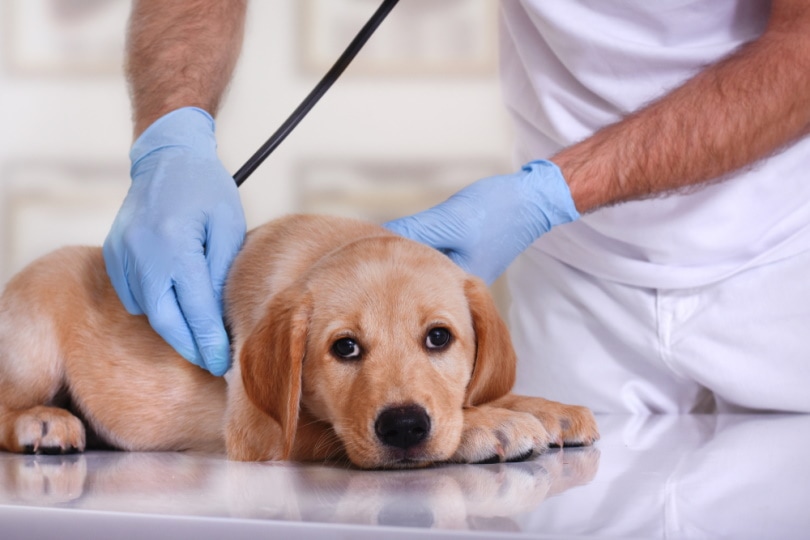
What If My Dog Ate Before Getting Spayed?
No matter how little your dog ate, you need to inform your vet. Eating right before surgery increases the risk of vomiting and pulmonary aspiration during the procedure, which can lead to death. Even if your vet scolds you for not following their instructions, know that it is better to postpone the procedure than to risk your dog’s life. The veterinarian will assess your dog’s condition and decide if they are still a good candidate for surgery based on the information that you provide: how much your dog ate, at what time, and what they consumed.
Conclusion
Before undergoing general anesthesia, you must not allow your dog to have access to food and water. If your dog’s stomach has food or water in it, the risk of vomiting increases, and the vomited material can be aspirated into the lungs. In some cases, this consequence can lead to infections and can even be fatal. Dogs should not have access to food for 6–12 hours before surgery and water for 2 hours. Fasting is safe, and you don’t have to worry about putting your dog’s life in danger.
Featured Image Credit: Iryna Kalamurza, Shutterstock
Contents
- Why Do Dogs Need to Fast Before Surgery?
- How Long Should Dogs Fast Before Surgery?
- Is Fasting Dangerous for Dogs?
- What Diet Should I Feed My Dog Before Surgery?
- Can My Dog Drink Water Before Surgery?
- Frequently Asked Questions
- How Long Should My Dog Fast Before Dental Surgery?
- What If My Dog Accidentally Drinks Water Before Surgery?
- What If My Dog Ate Before Getting Spayed?
- Conclusion

